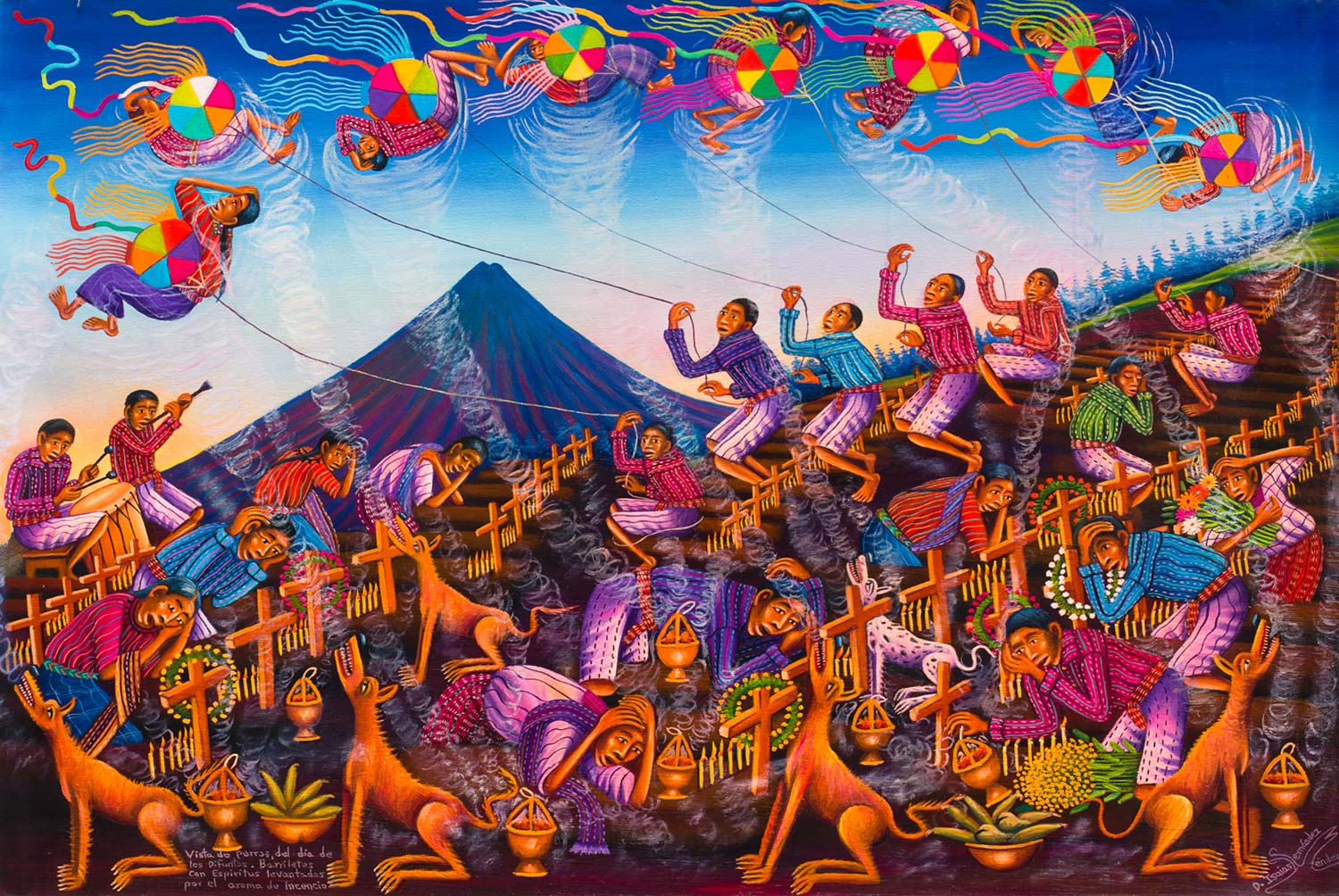People in Latin America and the United States celebrate Día de los Muertos—the Day of the Dead, or All Souls Day—to honor loved ones who have passed away and to celebrate their memory. It is a fusion of practices of indigenous communities, both ancient and modern, along with practices of the Catholic Church. All Saints Day is celebrated on the first of November, and All Souls Day (Day of the Dead) on the second. How communities celebrate Día de los Muertos depends on the community and the country. Traditions are different in Mexico, the United States, and Guatemala.
Guatemalan families spend the night of November 1 in the cemetery, adorning graves with pine needles, yellow marigolds (known as “flowers of the dead”), sweets, candles, and incense, as well as special foods. The relatives of the deceased come to share food with them on their graves, with special drinks and marimba music or special songs. The cemeteries fill with colors and aromas of incense, flowers and food. There is no lack of the music or the kind of food that the deceased enjoyed in life, thus their families listen and taste the food in memory of the deceased.
Perhaps the most unique part of the celebration in Guatemala is the flying of kites. This activity occurs in all Maya towns, but in two towns the kite festivals are especially notable: Santiago Sacatepequez and Sumpango. The kites in these two towns are meticulously made of colored paper in incredible designs and images and reach up to thirty-five feet across—whereas in the other Maya towns, the sizes of the kites are rather small. It is believed that during this time of year the souls of the departed are closest to Earth. The incense awakens their souls, and the kites are the means of communication between the families and their deceased loved ones. Once the celebrations have ended, the people burn the kites to release the spirits of the dead.
The dogs in Isaias’s painting can see what humans cannot—the souls of deceased relatives waking up and circling the kites. Dogs are also the guardians of the souls of the deceased. They are in charge of alerting families to dangers or advising families or communities of approaching disasters or deaths.


